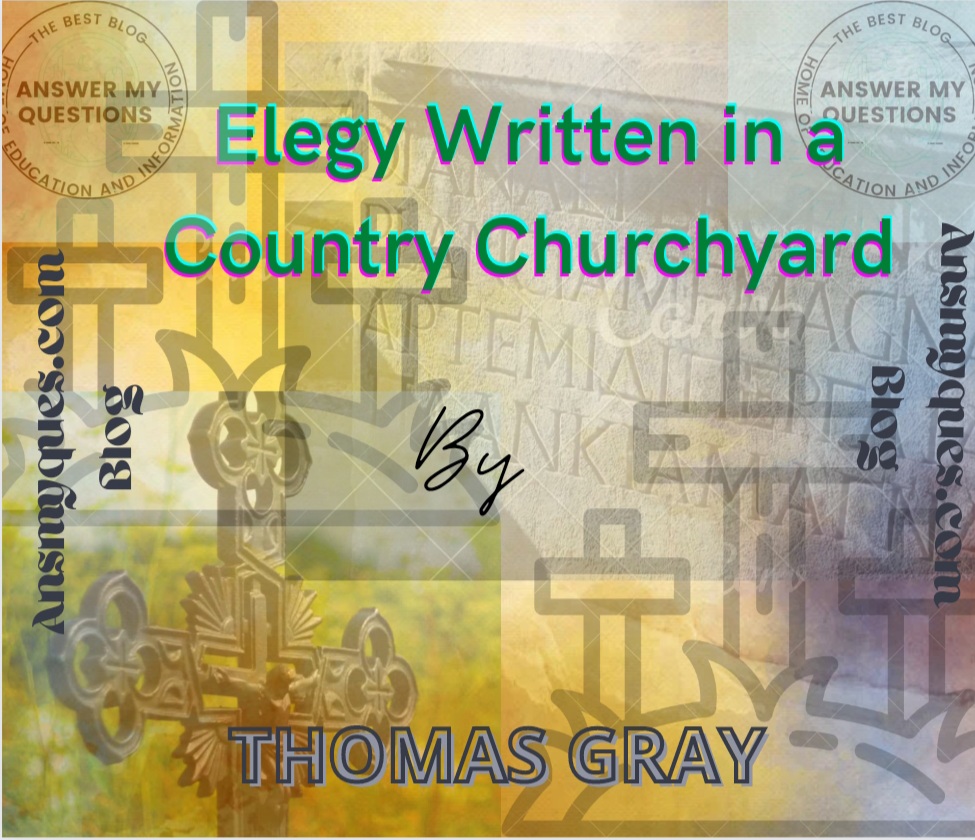PARADISE LOST POEM BY JOHN MILTON, BACKGROUND, CHARACTERIZATION, ANALYSIS/SUMMARY, FORM/STRUCTURE AND SYMBOLISM
“Better to reign in Hell than serve in Heaven”
PARADISE LOST POEM BY JOHN MILTON, BACKGROUND, CHARACTERIZATION, ANALYSIS/SUMMARY, FORM/STRUCTURE AND SYMBOLISM
To have better understanding of this poem, we should see it in the light of characters and their functions before we delve into background, summary, analysis themes and structure/form.
CHARACTERIZATION IN PARADISE LOST BY JOHN MILTON
1. God
Ruler of Heaven all-knowing defender of divine justice and free will, he’s believed to set fate but still gives free-will to humans, the bone of contention between fate and free-will was a question believed only him can answer and it still seems mysterious to humans.
2. Michael
Archangel, he was seen as the one who guides Adam and Eve out of Paradise after their sin of freely upon being warned not to eat of the fruit of Knowledge of good and evil.
3. Sin & Death (The two children of satan)
They were believed to be Satan’s children, their relationship serves as contrast to the Holy Trinity
4. Satan
Ruler of Hell and enemy of God complicated outcast. Seen to be deceptive with what happened between him and Eve, and how Eve upon knowing the consequences of eating the fruit choose to exercise her free-will
5. Adam
First human created by God, curious, smart, and rational but on the long run supported his partner in the ‘Fall’ by eating from the Tree of Knowledge of good and evil.
6. Eve
First woman beautiful, smart, and easily tempted. She could have resist the temptation but choose free-will, which is then a conundrum if it reshaped their fate
BACKGROUND OF THE POEM
Written in the 17th century and set in biblical times, Paradise Lost is an epic poem about God, Satan, Adam and Eve Delving into weighty themes such as fate virus free will and good versus evil. It tells of Adam and Eve’s tall from innocence and Satan war with God.
Paradise Lost is a poetic rewriting of the book of Genesis. It tells the story of the fall of Satan and his compatriots, the creation of man, and, most significantly, of man’s act of disobedience and its consequences: paradise was lost for us. It is a literary text that goes beyond the traditional limitations of literary story telling, because for the Christian reader and for the predominant ethos of Western thinking and culture it involved the original story, the exploration of everything that man would subsequently be and do. Two questions arise from this and these have attended interpretations of the poem since its publication in 1667. First, to what extent did Milton diverge from orthodox perceptions of Genesis? Second, how did his own experiences, feelings, allegiances, prejudices and disappointments, play some part in the writing of the poem and, in respect of this, in what ways does it reflect the theological and political tensions of the seventeenth century?
Paradise Lost was probably written between 1660–65, although there is evidence that Milton had had long term plans for a biblical epic: there are rough outlines for such a poem, thought to have been produced in the 1640s, in the Trinity MS, and Edward Phillips (1694:13) claims that Milton had during the same period shown him passages similar to
parts of Book IV of the published work. The first edition (1667) was comprised of 10 books and its restructuring to 12 book occurred in the 1674 edition.
ANALYSIS/SUMMARY OF PARADISE LOST BY JOHN MILTON
The poem commence with the lines: “Of Man’s First Disobedience, and the Fruit Of that Forbidden Tree, whose mortal taste Brought Death into the World, and all our woe.”
And in doing so it briefs the reader about the whole plot of the epic tale it is about to relate. The ‘first disobedience’ comes about when the devil, in the form of a serpent, tempts Eve to take and eat some fruit from the Tree of Knowledge. Eve then tells Adam what she has done and he too tastes the forbidden
fruit. This episode is so well-known that the phrase ‘forbidden fruit’ is widely used in society to refer to something tempting which is often morally dubious. Many people assume that that fruit was an apple, and like other writers before him, Milton calls the ‘fatal fruit’ in Book 9 an apple, but the Bible itself doesn’t name the type of fruit.
A key aspect of Paradise Lost is that Milton does not portray the couple’s decision to eat the fruit as inevitable. Instead, it shows that the couple exercised their free will. While Eve was seduced by the serpent, she still chose to eat the fruit, as did Adam in turn. The couple had the power to rule over everything on Earth with the only caveat that this particular fruit was out of bounds, and God expected this rule to be kept on trust as a sign of their obedience to Him. This is key because, as the poem states, Milton wanted to use the events to demonstrate the ‘ways of
God’ to people. The poem illustrates how He considered Adam and Eve to have within themselves the capacity to withstand temptation, but that they chose not to. This decision is known as ‘the fall’ because it is the moment when the couple – and all their descendants – fell from God’s grace.
As well as telling the story of Adam and Eve and the Fall, the poem also narrates the story of Satan. Also known as Lucifer, Satan was a fallen angel who was banished to Hell. After his expulsion, the devil famously claims that ‘it is better to reign in hell than to serve in Heaven’. Milton coined the name Pandemonium for the capital of Hell. Satan’s motivation to lead Adam and Eve into sin is part of his scheme to extract revenge on God for his banishment.
While living in innocence in Eden, Adam and Eve had the pleasurable task of tending the garden – the reason the clown in William Shakespeare’s play Hamlet comments that,‘There is no ancient gentleman but gardeners, ditchers, and grave-makers: they hold up Adam’s profession’ (5.1). After the Fall, however, the son of God is sent to Earth to mete out punishments. Adam is told that henceforth he will have to toil in backbreaking labour on the land to grow food. Eve’s punishments include that she will ‘bring forth in sorrow’ or experience pain in childbirth. The ultimate consequence of the Fall is that it brings death to Earth. Book 10 ends with Adam and Eve prostrate on the ground, their tears watering the earth as, full of remorse, they beg for forgiveness. This is the moment in the poem when the couple show that they have learnt from their actions and want to make amends.
FORMS AND STRUCTURES
Paradise Lost, epic poem in blank verse, one of the late works by John Milton, originally issued in 10 books in 1667 and, with Books 7 and 10 each split into two parts, published in 12 books in the second edition of 1674.
Many scholars consider Paradise Lost to be one of the greatest poems in the English language. It tells the biblical story of the fall from grace of Adam and Eve (and, by extension, all humanity) in language that is a supreme achievement of rhythm and sound. The 12-book structure, the technique of beginning in medias res (in the middle of the story), the invocation of the muse, and the use of the epic question are all classically inspired. The subject matter, however, is distinctly Christian.
The main characters in the poem are God, Lucifer (Satan), Adam, and Eve. Much has been written about Milton’s powerful and sympathetic characterization of Satan. The Romantic poets William Blake and Percy Bysshe Shelley saw Satan as the real hero of the poem and applauded his rebellion against the tyranny of Heaven.
THEMES IN PARADISE LOST BY JOHN MILTON
1. Obedience & Rebellion :
When Saton disobeys God’s demands for obedience, he is cast out of Heaven and begins a rebellion in Hell.
2. Fate & Free Will :
God claims to give humans free will, yet he also known everything before it happens.
3. GOOD AND EVIL :
Adam and Eve are “good” until their curiosity gets the better of them and introduces them to evil
SYMBOLISM IN PARADISE LOST BY JOHN MILTON
1. Scales of Justice
Symbolizes God’s all-knowing power and ability to enact divine justice
2. Tree of Knowledge
The temptation of that which is forbidden by God. It is the only tree God commanded Adam and Eve not to eat from.
3. Adam’s Wreath for Eve
The “pure love” Adam relinquishes for physical Just for Eve
Thanks for reading


